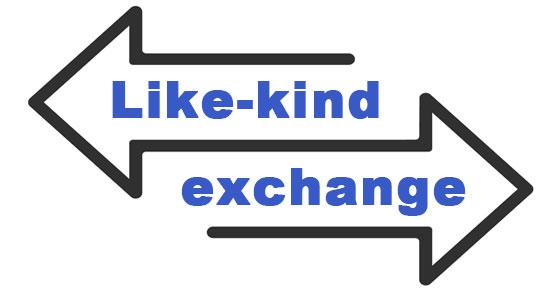Important considerations when engaging in a like-kind exchange

A business or individual might be able to dispose of appreciated real property without being taxed on the gain by exchanging it rather than selling it. You can defer tax on your gain through a “like-kind” or Section 1031 exchange.
A like-kind exchange is a swap of real property held for investment or for productive use in your trade or business for like-kind investment real property or business real property. For these purposes, “like-kind” is very broadly defined, and most real property is considered to be like-kind with other real property. However, neither the relinquished property nor the replacement property can be real property held primarily for sale. If you’re unsure whether the property involved in your exchange is eligible for a like-kind exchange, contact us to discuss the matter.
Here’s how the tax rules work
If it’s a straight asset-for-asset exchange, you won’t have to recognize any gain from the exchange. You’ll take the same “basis” (your cost for tax purposes) in the replacement property that you had in the relinquished property. Even if you don’t have to recognize any gain on the exchange, you still have to report the exchange on a form that is attached to your tax return.
However, the properties often aren’t equal in value, so some cash or other (non-like-kind) property is thrown into the deal. This cash or other property is known as “boot.” If boot is involved, you’ll have to recognize your gain, but only up to the amount of boot you receive in the exchange. In these situations, the basis you get in the like-kind replacement property you receive is equal to the basis you had in the relinquished property you gave up reduced by the amount of boot you received but increased by the amount of any gain recognized.
Here’s an example
Let’s say you exchange land (investment property) with a basis of $100,000 for a building (investment property) valued at $120,000 plus $15,000 in cash. Your realized gain on the exchange is $35,000: You received $135,000 in value for an asset with a basis of $100,000. However, since it’s a like-kind exchange, you only have to recognize $15,000 of your gain: the amount of cash (boot) you received. Your basis in the new building (the replacement property) will be $100,000, which is your original basis in the relinquished property you gave up ($100,000) plus the $15,000 gain recognized, minus the $15,000 boot received.
Note: No matter how much boot is received, you’ll never recognize more than your actual (“realized”) gain on the exchange.
If the property you’re exchanging is subject to debt from which you’re being relieved, the amount of the debt is treated as boot. The theory is that if someone takes over your debt, it’s equivalent to him or her giving you cash. Of course, if the replacement property is also subject to debt, then you’re only treated as receiving boot to the extent of your “net debt relief” (the amount by which the debt you become free of exceeds the debt you pick up).
Like-kind exchanges can be complex but they’re a good tax-deferred way to dispose of investment or trade or business assets. We can answer any additional questions you have or assist with the transaction.
© 2022





